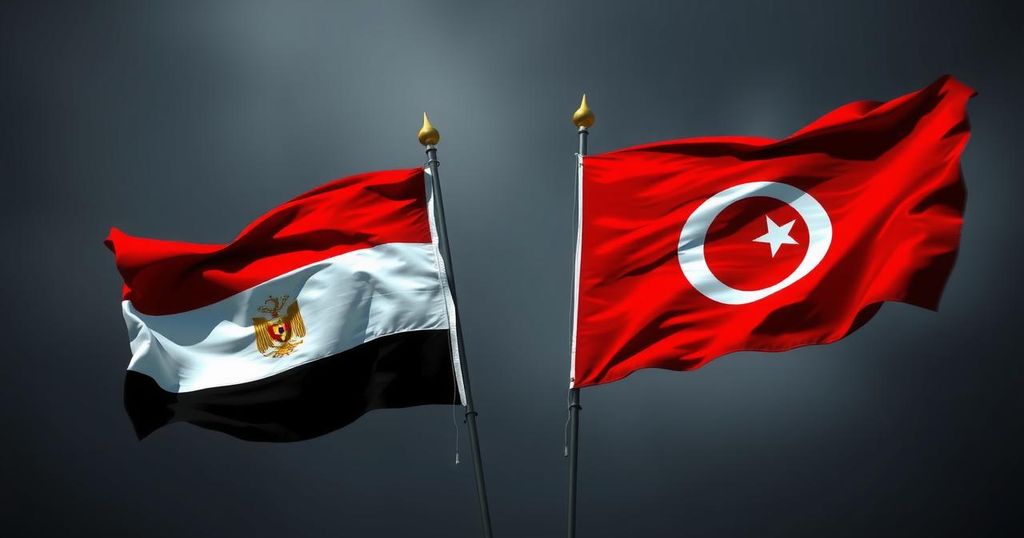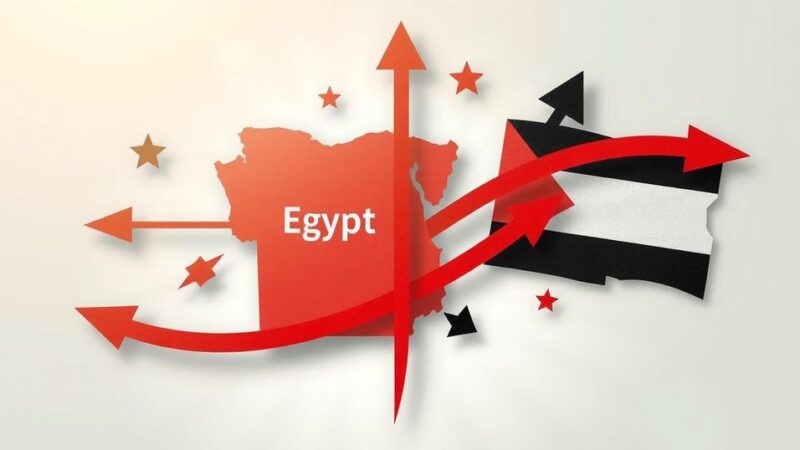The recent warming of relations between Egypt and Turkey, formerly rival supporters in Libya, may foster the potential for peace among rival factions. Although oil exports have resumed following a central bank dispute, ongoing volatility persists. Recent statements from Egyptian and Turkish leaders indicate a commitment to collaboration towards stability in Libya. The intertwining of economic interests is key to this rapprochement, as both nations contend with crises of their own, with hopes that collective efforts will yield some resolution to Libya’s enduring strife.
The recent normalization of relations between Egypt and Turkey, historically supporters of opposing factions in Libya, has generated optimism for resolving the ongoing tensions in the North African nation. Following a recent resumption of oil exports, which had been halted due to a dispute over the central bank’s control, experts are cautiously optimistic. Jalel Harchaoui from the Royal United Services Institute remarked, “This was a serious crisis. And while it’s partly fixed, there are still issues that need attention.” The conflict between Libya’s rival administrations was a notable cause for this crisis, which was mitigated through intense negotiations, yet its aftereffects persist. Harchaoui noted that various actors, including armed groups in Tripoli, continue to exploit the situation, creating a more unstable environment. The recent diplomatic shift between Egypt and Turkey presents an opportunity to alleviate tensions. Egyptian President Abdel Fattah al-Sisi confirmed the intention to collaborate towards achieving security and political stability during a press conference in Ankara with Turkish President Recep Tayyip Erdogan. This marks a significant turnaround from the previous rivalry, where Egypt supported the eastern administration in Benghazi led by Khalifa Haftar, while Turkey backed the western Tripoli-based Government of National Unity. Experts suggest that the cooperation between these nations could help guide the Tripoli government to reach consensus with rival factions. Murat Aslan of the SETA Foundation stated, “Both countries can push the Tripoli-based government at least to accept something or come to the least terms that they can agree. So it’s a win-win situation for both Egypt and Turkey.” Amid economic crises in both countries, this newfound cooperation is viewed as pivotal in addressing their economic challenges. Aya Burweila, a Libyan security analyst, emphasized the importance of economic ties, asserting that Turkey and Egypt have effectively carved out their spheres of influence to collaborate, even making joint investments in eastern Libya. As Egypt seeks Turkey’s assistance in leveraging influence over Haftar to explore energy reserves with the Tripoli government, persistent differences remain. Nonetheless, Harchaoui emphasized that both nations are committed to ongoing communication and coordination in addressing issues in Libya. “What has already been decided is that they are going to speak and they are going to speak on a daily basis,” he remarked, stressing the necessity for more tangible outcomes from their bilateral dialogue.
Tensions in Libya have persisted for years, largely due to the divide between rival governments: one in the east led by Khalifa Haftar and another in the west led by the Government of National Unity in Tripoli. Egypt and Turkey have historically supported opposing factions, with Egypt backing Haftar and Turkey supporting the Tripoli government. The recent deterioration in relations between these factions has been exacerbated by internal disputes, economic instability, and shifts in regional power dynamics. With both countries facing significant economic challenges, their recent rapprochement represents a strategic effort to stabilize Libya, crucial for regional security and mutual economic interests.
In summary, the rapprochement between Egypt and Turkey marks a potentially transformative moment for Libya, as both nations strive to navigate their historical rivalry in favor of collaboration. This cooperation could facilitate essential dialogue among Libya’s conflicting factions and promote economic stability in both countries, ultimately contributing to a more peaceful resolution to the Libyan crisis. Cautious optimism is warranted, but the complexities of Libya’s political landscape will require sustained commitment from both nations to ensure progress.
Original Source: www.rfi.fr






